Most Wanted: A Criterion Game, but is it Need for Speed or Burnout?
Joao spends a few hours with a near-final version on Xbox 360.
Whether you relish Burnout 2's race bias or harbour a secret penchant for the chaotic atmosphere of Burnout Revenge instead, you can't argue against Criterion's record turning out enjoyable driving games. But this isn't Burnout, it's the developer's re-imagining of the once-popular Need for Speed: Most Wanted, so should we be looking somewhere else for comparisons?
Perhaps we should be considering Black Box's 2005 Most Wanted, which was very much a product of the NFS assembly line - miles better than The Fast and The Furious-injected wrecks that came before it, but never fully free of the corrosion that has progressively weakened the series' chassis since it unceremoniously reversed over the 3DO original. Or perhaps the whole series is suffering from an unsolvable identity crisis after so many different developers have tried to push it in so many different directions.
Talk to representatives of the 130-strong development team on this Most Wanted, and they'll tell you they expect most articles on Most Wanted to reference Hot Pursuit - Criterion's previous stab at Need for Speed, released in 2010 - and of course Burnout Paradise. To that list you can now add this preview, then. Yet the interesting aspect isn't how Most Wanted inevitably incorporates obvious elements from Criterion's last two major releases, but rather how it has convincingly evolved beyond those titles.
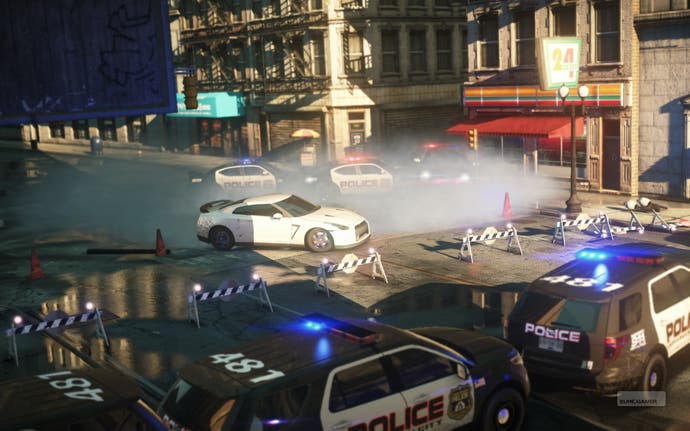
The new Most Wanted, boosted by Criterion DNA pumping through its fuel line, is a rather different beast to 2005's, although not an initially unfamiliar one. You're offered an open-world approach that will draw unavoidable comparisons with Paradise's equivalent yet, like other aspects of the game, Fairhaven very quickly establishes its own identity. This is a grittier, harsher locale where barriers aren't always there to save you, and one that is denser in its delivery of play possibilities but designed less rigidly - certainly in the urban segments - thereby encouraging a more organic approach to driving. Where Paradise delivered a city of cars, for instance, here you have a world of drivers. It's a small point, but a big distinction.
For Criterion, Most Wanted in 2012 is about fun with your friends, so Autolog 2.0 is tracking your every tyre tread. Blast past a speed camera, smash through billboards to perform absurdly long jumps, break down gates or discover cars, and your performance is instantly compared to that of your chums. In the case of billboards, you even get the gamer picture of the current leader displayed, and the urge to momentarily abandon your current objective in order to eradicate their smug face from your gameworld shouldn't be underestimated.
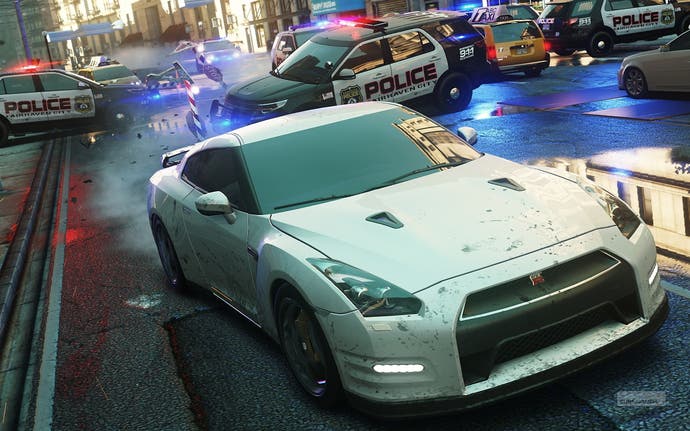
But it's when you all meet up online that competitive natures are fully exploited. Most Wanted multiplayer is varied, with events ranging from single- and team-based races, drift challenges, and jump-related requests, to group takedowns, and acrobatic driving involving imaginative use of the city's architecture. And they keep coming - as long as you stay, there'll be something to play. It's dynamic and expectedly brutal (the good kind), and no opportunity to encourage rivalry is lost. Even the drive to the start of an event is turned into a competition, with first of the eight to arrive rewarded with a boot-full of Speed Points.
Ah, yes, Speed Points. They're Most Wanted's version of XP and you get them for any achievement in-game, whether big or small. They're integral to what little structure there is intentionally present at the core of the game because they're the key to unlocking access to the Most Wanted cars (more on those in a bit), but long-term the true role of Speed Points most likely lies elsewhere: as the fuel that drives the Most Wanted experience onwards, and as the ultimate 'brag badge', given that your running total determines your rank amongst your peers.
Not that the cars aren't the stars. You've barely had time to decide between chase or bumper cam when you'll come across a new vehicle to jump into. These 'jackspots' riddle Fairhaven due to Criterion's much-publicised decision to open up all of the cars in the game, and the resulting kid-in-a-sweet-shop effect is refreshing. Rewarding, too: after five-ish hours with the preview code, and far from focusing on car-hunting as the main task, my vehicle roster had grown to 51 out of a 123 total. (Bar the ten 'Most Wanted' models you have to progressively face-off in race meetings and then 'shut down' in order to own - a welcome sprinkling of structure in an otherwise unimpeded playground.)
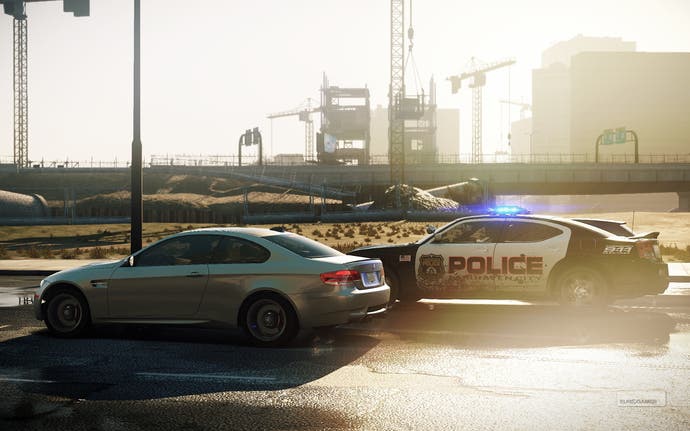
And you don't have to stick long with any of the passionately selected modes of transport to realise that the handling model represents another development. More intuitive, expansive and friendlier than Hot Pursuit's, with considerably less insistence on powersliding through wide-radius bends, it's also more grounded in reality than Burnout's. It's not going to get Forza looking over its rear wheel arch with concern, but Criterion's insistence that the game will integrate force feedback wheel input is some indication. Try that on Paradise and see how far it gets you.
Whichever control method you favour, the reality is that you'll be too busy to analyse every nuance of the handling dynamics. If you're not attempting to knock a friend's effort off the top of the table because Autolog's just helpfully pointed out how comparatively rubbish you are, trying to win a race or complete a milestone that will unlock better mods for your chosen vehicle, or battling it out in multiplayer, you've probably got the cops on your tail.
Central to the Most Wanted concept, of course, is the fact that you're on first-name terms with the police department and in Fairhaven the authorities are quick to engage. The initial stages of a chase present little challenge - the pursuit vehicles are apprehensive and the road blocks all have gaping holes in them - but increase the wanted level and pretty soon you're facing a far more determined force until, at level six, you meet impenetrable SWAT vans and rapid response units. Manage to evade them, switch car, find a cosy corner, sit still until everything's cooled down, and you can bag yourself a bundle of Speed Points. Longer play will likely confirm that the tension of police chases in Most Wanted comes not necessarily from the difficulty of the pursuits themselves, but rather from the threat of losing the accumulated speed Points if caught.
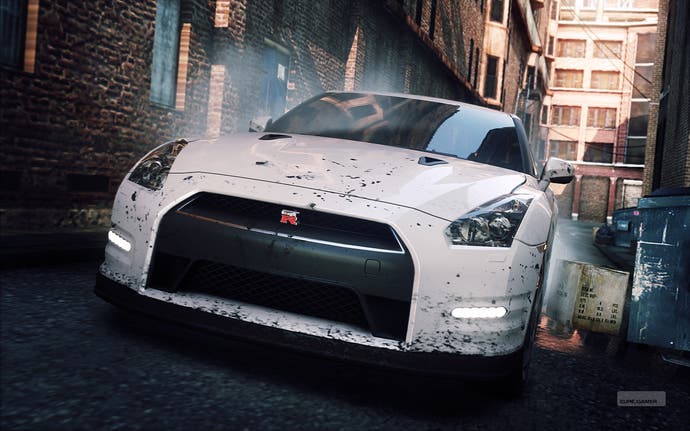
The game's overall balance is something that can only be fairly assessed with longer play sessions. Similarly with Criterion's brave decisions: early signs are that the unrestricted access to cars is effectively a breath of fresh petrol, while the real-time mod system is pushing the NFS charter into territory you'd expect it to find uncomfortable. The latter, which lets you swap between tyre and boost types (among other things) on the fly, will feel disruptive until mastered, although the Kinect voice control seems well implemented.
Boundaries are being reached technically, too. On Xbox 360 you can't help but notice when the expert visuals and the intensity of the action ask too much of the system, resulting in wobbles in the otherwise-solid 30 frames-per-second display. Hardly game-breaking on the basis of preview play to date, but very unusual for a Criterion game at this late stage.
The bigger questions remain as to whether Most Wanted is a 'true' NFS title, and indeed whether that matters. And at this stage that's a quick 'no' and then another 'no' to boot. How much it appeals will depend on how stubbornly a gamer is holding onto the notion of what a Need for Speed game should be. For those prepared to strap themselves in, 2012's Most Wanted should feel like a genuine evolution, a modern, socially connected experience that offers deep multi-level play, developed by a team confident enough to drive against the flow of a genre too often gridlocked by convention.
Not everyone will agree, obviously, but on the basis of Most Wanted so far, it would appear that Criterion isn't remotely confused about which kind of game it's making, and that's the most important thing.
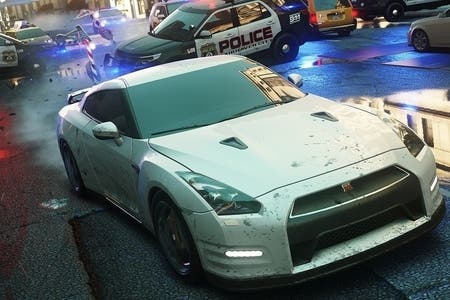

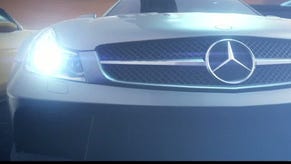

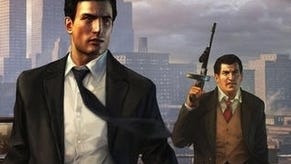
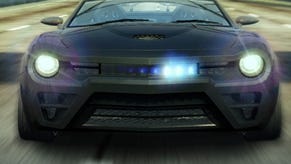
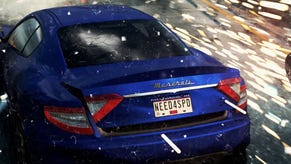






.png?width=291&height=164&fit=crop&quality=80&format=jpg&auto=webp)



